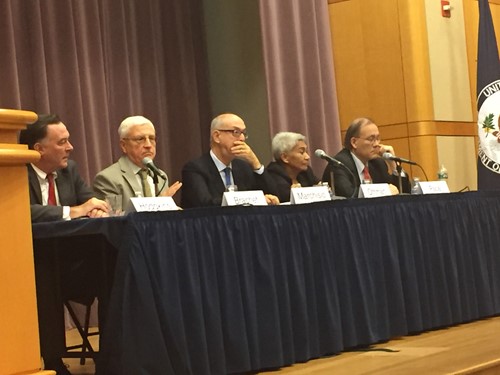Progress and Planning Ahead: International Best Practices for Outer Space Sustainability
When: Friday, October 21, 2016
Time: 8:15am- 4:30pm
Where: George C. Marshall Conference Center, U.S. Department of State, Washington, DC

On June 17, 2016, the United Nations Committee on the Peaceful Uses of Outer Space (COPOUS) agreed to 12 long-term sustainability (LTS) guidelines, representing “best practices” for the safe and responsible use of space. These 12 voluntary guidelines mark a successful milestone out of years of discussions within COPUOS and represent the Committee’s role in fostering international cooperation in ensuring that we can continue to get benefits from the use of space over the long-term. However, there is still much work to be done. Next, nations must start thinking about how they intend to implement these guidelines. Furthermore, COPUOS will continue to develop additional LTS guidelines over the next two years, with the goal of having a compendium of LTS guidelines endorsed by the UN General Assembly in 2018.
Co-organized by the Secure World Foundation and the U.S. Department of State, "Progress and Planning Ahead: International Best Practices for Outer Space Sustainability" brought together top U.S. and international space policy experts from governments, industry, and academia to discuss the current state of the long-term sustainability guidelines discussions, national implementation strategies, and next steps for the international community to ensure that space is sustainable over the long-term. Speakers included Simonetta di Pippo, director of the United Nations Office of Outer Space Affairs; David Kendall, chair of UN COPUOS; and Peter Martinez, working group chair of the UNCOPOUS’ Long-Term Sustainability Working Group.
For more information, please contact Washington Office Director Victoria Samson at vsamson@swfound.org.
Event Materials
For the agenda and complete list of speakers, please click here.
For keynote remarks, please click here.
Media
Highlights from the Brazilian Space Agency can be found here.
Video recording and transcripts are available for Panel 1 and Panel 2.
Audio recordings: Panel 1, Panel 2, Panel 3 (transcript 3), Panel 4 (transcript 4)

 Share
Share